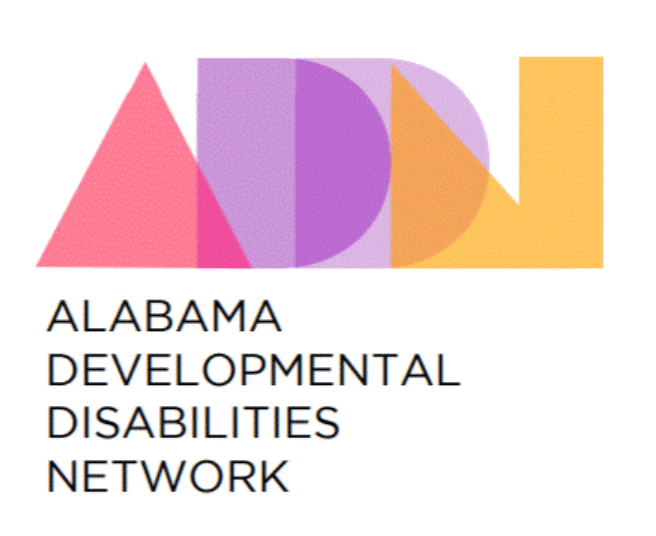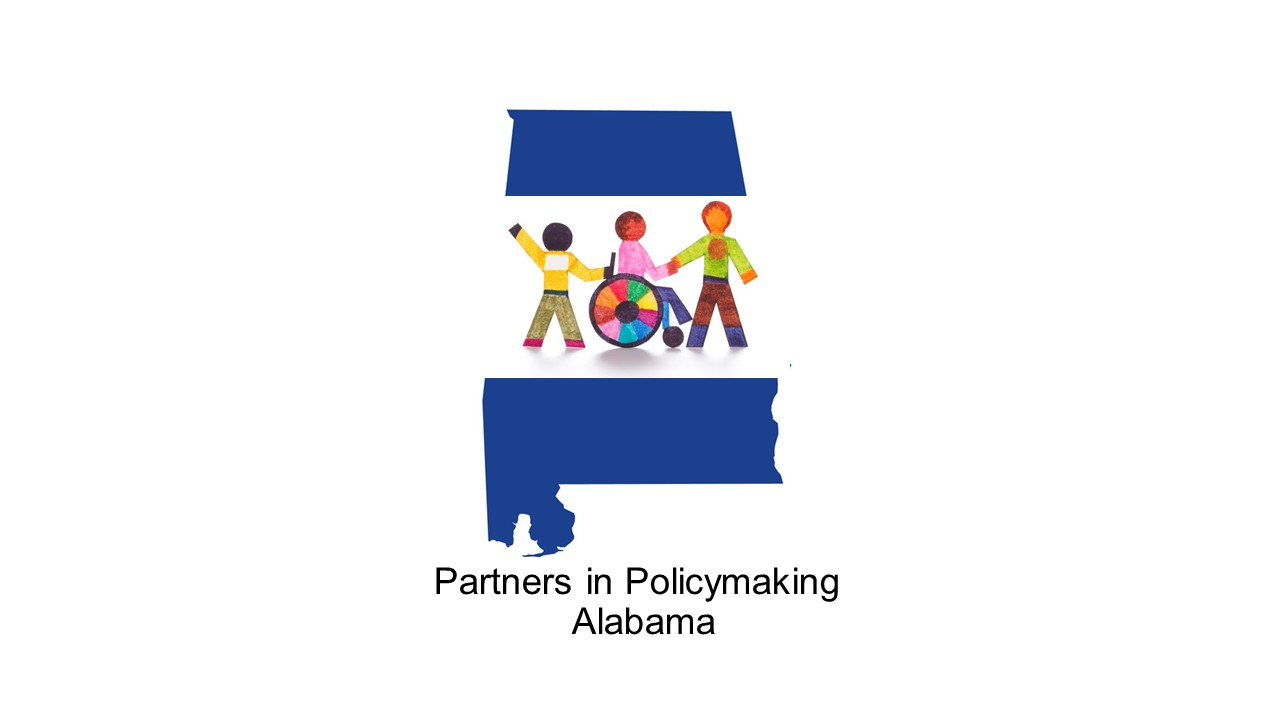
The Alabama Developmental Disabilities Network (DD Network) has been serving the State of Alabama for over 20 years and are pleased to announce an enhanced collaboration. Our goal is to bring you the latest knowledge and resources to those who can put it to the best use, including self-advocates, families, service providers, and policymakers. The Alabama DD Network is made up of the DD Council, ADAP, and UCEDD. These three Programs are explained in greater detail below.
 The Alabama DD Network is proud to collaborate on Partners in Policymaking Alabama. We are now in our third cohort since the relaunch. We are excited to bring this advocacy training to the people of Alabama, and look forward to working with you.
The Alabama DD Network is proud to collaborate on Partners in Policymaking Alabama. We are now in our third cohort since the relaunch. We are excited to bring this advocacy training to the people of Alabama, and look forward to working with you.
We want to share important information concerning proper health hygiene. Below are trusted sites that you can rely on to provide you with the correct procedures to follow for protection and prevention.
For Alabamians who have questions and would like current updates please continue to visit the Alabama Department of Public Health and for more information on call the Alabama hotline at 1-888-264-2256.
Updates offered by the Minnesota Department of Public Health in American Sign Language, Spanish, Somali and Hmong.
For the Aging and Disability Networks
Program-Specific Information
Emergency Planning Toolkit
Resources from Centers for Medicare & Medicaid Services
More from the CDC
Information for Medicare Beneficiaries
Beware of scams: FTC guidance
Language Access Resources (from our grantee)
Fact Sheet for older adults and people with disabilities
- Contact your healthcare provider to ask about obtaining extra necessary medications to have on hand in case there is an outbreak of a virus in your community and you need to stay home for a prolonged period of time.
- If you cannot get extra medications, consider using mail-order for medications.
- Be sure you have over-the-counter medicines and medical supplies (tissues, etc.) to treat fever and other symptoms. Most people will be able to recover from virus's at home.
- Have enough household items and groceries on hand so that you will be prepared to stay at home until notified.
Take everyday precautions
- Clean your hands often. Wash your hands often with soap and water for at least 20 seconds, especially after blowing your nose, coughing, or sneezing, or having been in a public place.
- If soap and water are not available, use a hand sanitizer that contains at least 60% alcohol.
- To the extent possible, avoid touching high-touch surfaces in public places – elevator buttons, door handles, handrails, handshaking with people, etc. Use a tissue or your sleeve to cover your hand or finger if you must touch something.
- Avoid touching your face, nose, eyes, etc.
- Clean and disinfect your home to remove germs: practice routine cleaning of frequently touched surfaces (for example: tables, doorknobs, light switches, handles, desks, toilets, faucets, sinks & cell phones)
Alabama Developmental Disabilities Network
The Council on Developmental Disabilities is an independent agency created by the Developmental Disabilities Assistance and Bill of Rights Act of 2000 (DD Act). The DD Act is based on principles of self-determination, independence, productivity, integration and inclusion in all facets of community life for individuals with developmental disabilities. The DD Act created programs that make up a DD Network in every state and U.S. Territory:
-
State Councils on Developmental Disabilities (Councils)
-
University Centers for Excellence in Developmental Disabilities (UCEDDs)
-
Protection & Advocacy Systems (P&As).
Councils on Developmental Disabilities
-
Councils are federally-funded, self-governing organizations charged with identifying the most pressing needs of people with developmental disabilities in their state. Councils advance public policy and practices that improve services to citizens with intellectual and developmental disabilities. Key activities include conducting outreach, providing training and technical assistance, removing barriers, developing coalitions, encouraging citizen participation, and keeping policymakers informed about disability issues. The Council network is coordinated by the National Association of Councils on Developmental Disabilities.
-
Alabama’s Council is operated by Alabama Council on Developmental Disabilities.
Protection and Advocacy System
-
Protection & Advocacy Systems protect the rights of individuals with disabilities, including behavioral and mental health problems. The P&A network is coordinated by the National Disability Rights Network.
-
Alabama’s P&A system is operated by Alabama Disabilities Advocacy Program (ADAP).
University Centers for Excellence in Developmental Disabilities Education, Research and Service
-
University Centers support interdisciplinary training, services, research, and dissemination of information in the field of developmental disabilities. There are 64 UCEDDs nationwide. The UCEDD network is coordinated by the Association of University Centers on Disabilities.
-
Alabama’s University Center for Excellence in Developmental Disabilities (CEDD) is located within the University of Alabama at Birmingham’s Civitan-Sparks Clinics.
Administration on Intellectual and Developmental Disabilities - AIDD
The Administration on Intellectual and Developmental Disabilities is the federal administering agency that oversees Councils, P&A Systems and UCEDDs. It is located in the Administration on Community Living of the U.S. Department of Health and Human Services. Learn more about the history of the Administration.